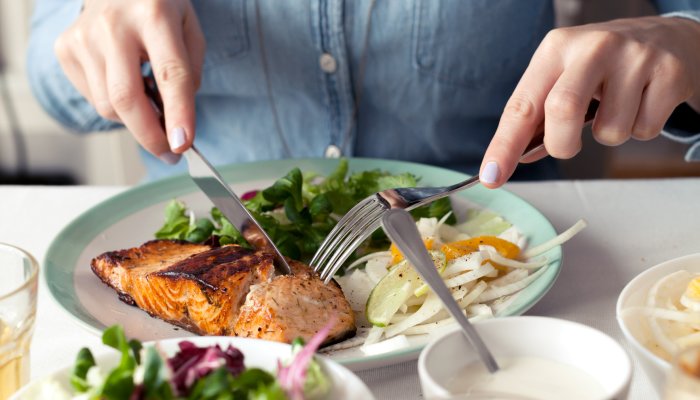

Salmon skin also contains collagen proteins that help support skin and joint health.
“Cooking a salmon filet with the skin on may also better preserve the natural fat and nutrients in the salmon during preparation,” adds clinical dietitian Huma Chaudhry, R.D., LDN. These nutrients include vitamin D for immune support4, potassium for blood pressure control5, and vitamin B12 (folate) for energy metabolism6.
All this is to say, it’s worth leaving the skin on if you can. It’ll help take salmon—which is already a very healthy food—to the next level nutritionally. “I tell people, if [salmon] comes with skin on, leave it on—there’s no need to remove it,” says registered dietitian nutritionist Roxana Ehsani, M.S., R.D., CSSD, LDN.
If you end up cutting the skin off, do so carefully to protect the gold mine of healthy fats underneath it. Glide a sharp knife underneath the skin, getting as close to it as possible, before cooking your salmon. You can also use your hands to peel the skin off after the salmon is cooked—again, ensuring to protect the layer of flesh underneath.








